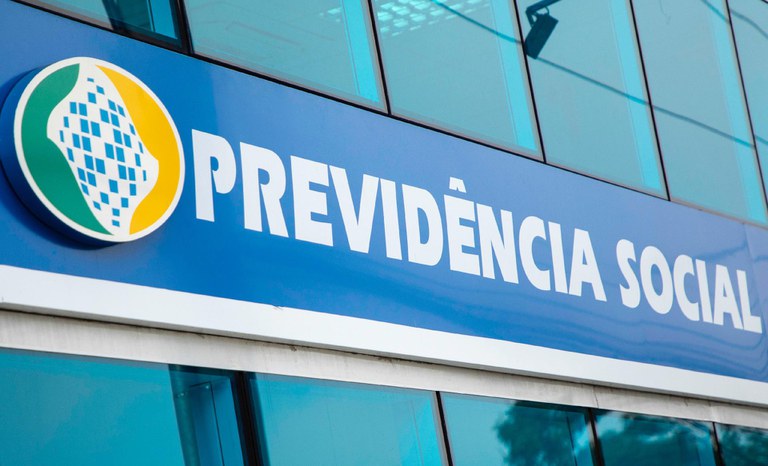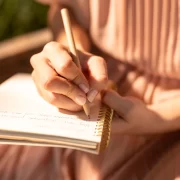If you are new to Wikipedia, you may want to read the Welcome, newcomers page. There's lots of cool stuff here; see how to explore Wikipedia.
These are the broad categories covered in this FAQ. See /Talk for pre-FAQ discussion.
- Contributing to Wikipedia
- What is Wikipedia
- How do I ...
- Other Questions
Contributing to Wikipedia
Q. Can you explain the ? links?
A. The ? link indicates that an article with that name has not yet been started. So you can click on that link and start a page with that name. But be careful -- there may already be articles on similar topics, or an article on the same topic under a different name. It's pretty important to hunt around for similar topics first. ? links appear automatically on CamelCase words.
Q. How do I start a new page?
A. See Como começar uma página.
Q. How do I edit a page?
A. See how does one edit a page.
Q. Why should I contribute to Wikipedia?
A. See why on Earth would I want to contribute to a wiki
Q. Are there any guidelines or hints?
A. See tips on contributing to Wikipedia. For a discussion of unsettled or unsettling questions about Wikipedia, see Wikipedia policy; you'll find discussions on naming conventions, topic creation, refactoring, point of view, etc. Finally, be bold in updating pages!
Q. I want to contribute but I don't want to make any faux pas. What should I do?
A. Thanks for caring--but don't worry too much. If you stick around long enough, all will become clear. So dive right in! If you want, read most common Wikipedia faux pas and you should do fine.
Q. I'm interested in a topic but not comfortable with starting a new article. What can I do?
A1. Add your topic to the requested articles page.
A2. Check out Public Domain Resources -- you may find material to copy over or use as a basis for your own article.
Q. But I'm not sure whether it's OK if I use this content I want to copy. I see the ominous warning at the bottom of the page, "DO NOT USE COPYRIGHTED WORK WITHOUT PERMISSION!", and I wonder if that applies to me. How can I tell?
A. Wikipedia content is released according to the GNU Free Documentation License. To put it briefly, unless the stuff you're copying is (1) public domain (so that there is no legal copyright claim on it at all) or it is (2) similarly released under the GNU Free Documentation License, then, probably, you shouldn't use it.
Obviously, just because something is freely readable on someone's web page, that doesn't necessarily mean we can use it on Wikipedia. Even if it's released under something resembling a open content license, we still might not be able to use it. If there's any possible doubt, then please, please, make use of the /Talk page (create one if one doesn't exist already) and ask. Someone will surely answer promptly. Another place to ask is on Wikipedia-L.
Q. Why are some links preceded by a slash?
A. The slash indicates that the linked page is or will be a subpage of another. If there is no target specified, the page will be a subpage of the page you are currently on, unless you are on a subpage already. (There can only be one level of subpages. For instance, a link to /Newpage from Algeria/Economy would make the page Algeria/Newpage, not Algeria/Economy/Newpage.) Users can also specify which page the link should be a subpage of, for instance: Poker/High-low split.
There is an ongoing debate on Wikipedia about the usefulness and limits of subpages, with the debate centering around the contextualization and implied hierarchy of them.. See Larry Sanger/Why I am suspicious of subpages, Larry Sanger/The case against subpages and Wikipedia_commentary/Get_rid_of_subpages_entirely for most (all?) of the debate. But it seems everyone agrees that subpages are useful for commentary, debate, and strictly personal pages such as To-Do lists.
Q. Is there a mailing list available for "off-Wiki" discussion?
A. Yes. See Wikipedia-L.
What is Wikipedia?
Q. What is a Wiki?
A. See what is a wiki and what is a Wiki for.
Q. When did the Wikipedia start?
A. January 15, 2001. An earlier version of the wiki (including original versions of some of these pages) was briefly hosted on Nupedia.com (first posted January 10). The idea of a Nupedia-sponsored wiki originated out of a conversation Larry Sanger had with Ben Kovitz on the evening of January 2.
Q. Who owns Wikipedia?
A. Well, that's an interesting question. The owner of the server, the domain name and the layout of the pages is Bomis, Inc. The articles are released under the GNU Free Documentation License, so the articles are open content. So it is a bit misleading to say that the owner of Wikipedia articles is Bomis; Bomis doesn't own them in any traditional sense of ownership. (Bomis CEO and President Jimbo Wales might want to elaborate this reply.)
Q. Why is wikipedia.org redirected to wikipedia.com and not the other way around?
A. I'm afraid it's for precisely the reason you fear: the people who are organizing this view it partly, from their point of view, as a business. They hope to recoup their costs, at the very least (certain Wikipedia members are actually paid to help!)--by placing banner ads, someday in the possibly-distant future. It would, thus, be dishonest of them to use .org. Of course, if you don't like this, it will be possible to export all the contents of Wikipedia for use elsewhere, since the contents of Wikipedia are covered by the GNU Free Documentation License.
Q. What is Nupedia?
A. See how does Wikipedia relate to Nupedia.
Q. Can I add Nupedia articles to Wikipedia?
A. Sure. Please do add Nupedia articles to Wikipedia, but also add Wikipedia articles to Nupedia!
Q. How can I help publicise Wikipedia?
A. Good question. See publicize Wikipedia.
Q. Is it "the Wikipedia," or just plain "Wikipedia"?
A. Excellent question. We don't know, and most of us probably don't care. Some of us say "the Wikipedia" and some of us say "Wikipedia" (and some of us say both).
If there were only one Wikipedia (which, as it happens, there is no longer; see international Wikipedia), then "Wikipedia" would be a (unique) proper name, in which case saying "the Wikipedia" would be rather strange-sounding, like "the Britannica." On the other hand, we might be using "Wikipedia" as a type term, like "encyclopedia," so if someone says, "I contributed an article to the Wikipedia the other day," it's like saying, "I contributed an article to the encyclopedia the other day." But in that case, we're using "Wikipedia" as a type term, and so it should be lower case: "wikipedia," right? Perhaps it would be best to refer to http://www.wikipedia.com/ as "the English Wikipedia" or "the English-language Wikipedia," since it is now only one of several Wikipedias (or is that wikipedias?). Clearly, we are in need of the services of a professional linguist.
Q. There are lots of Wiki clones, with different features. Which is Wikipedia using?
A. Good question. We are using UseModWiki, for which Clifford Adams is responsible. Thanks, Cliff!
Q. I have a million objections to the very concept of Wikipedia. How can you expect me (or anyone) to take it seriously?
A. Please see Wikipedia/Our Replies to Our Critics.
How do I ...
Q. How do I delete a page, especially one of my own?
A1. Consideration for others demands that you exercise extreme caution in doing so, if the page in question isn't one that you started, or is one to which many others have contributed something of interest. But strictly speaking there's nothing stopping you: all you have to do is remove the text from the page. You can also click on the name of the page
(at the top of the page) to see what other pages link to the deleted page, and delete links to it. Again, extreme caution is advised ... and you can make use of the BadJokesAndOtherDeletedNonsense page.
A2. Usually (but not always), rather than deleting a page, the page should be redirected somewhere useful. If someone writes a nice article on 'JFK' it should be moved to 'John F Kennedy' (or similar) and a redirect put in place. If someone writes a nice article 'Lincoln' (about Abraham Lincoln) then it should be moved to 'Abraham Lincoln' and then 'Lincoln' should be a page which lets people select from Lincoln, Nebraska or Abraham Lincoln. In this way, accidental linking is maximized. I think that this plan fits the principle of least astonishment.
Q. So, how do I change the entry heading for a topic? "TheLaw" is a topic and should be "Law".
A. Only system administrators can do that, so you'd ask Jimbo Wales or Larry Sanger (we might just set up a "change request page" for this purpose). In the meantime, you can use the #REDIRECT new page name command. On this, please see our page editing instructions.
Q.How do I edit a page that has been redirected? I made a definition of polymer, and tried to put a link on the organic conductors page, but clicking on edit, for either "Organic Conductors", or "Organic conductors" gives the redirect command.
A. The easiest way to edit the redirected page is to click on its title after being redirected. For example, if you try to go to the BillClinton page, you are redirected to the William Jefferson Clinton page. At the very top of that page, you will see a message: "(redirected from BillClinton)", and "BillClinton" will be a link. Click on that link, and you will edit the "BillClinton" page. (You could then remove the redirect command, and add your own text.)
[Wikipedia is (probably) moving toward more capital letters in titles, but greater freedom in links. I'm leaning strongly toward capitalizing all the words in page titles, but allowing links to be lowercase. This would mean that page titles would be like "Organic Chemistry", but one could link to that page with any of "organic chemistry", "Organic chemistry", "organic Chemistry", or "Organic Chemistry". --CliffordAdams]
Q. How do I learn about changes to certain topics without having to go there from time to time?
A. Although you can't monitor a specific page, you can click on the Recent Changes link at the top and bottom of every page to see a list of all pages that have changed recently.
Q. How does the search box at the bottom of the page work?
A. See searching on Wikipedia.
Q. How do I report that something isn't working properly?
A. Add it to the Wikipedia bugs page. If whatever's happened is so serious that you can't even do that, well, someone will notice it soon enough.
Q. How do I submit a suggestion for a new feature?
A. Simply enter it on the feature requests page.
Q. How do I spell-check a page?
A. In Ward Cunningham's wiki there is a spelling checker, but it has caused some concerns. A spell checker has been requested for Wikipedia as well. When editing a larger article, it is in any event much more convenient to paste the text into your favorite text editor first, edit and spell check there, and then paste back into your browser to preview.
- ----
- That's what I do now, but it has problems too. I'm using NS 6.0 on Linux and for some reason a <select> and <paste> from the browser edit box loses all leading blanks. Then I have to figure out how many are needed and put (what I hope are) the right number back manually.
Q. How can I put pictures on my pages?
A. First, you need the right to publish the picture under the GNU Free Documentation License. If the picture is located on a server you control, you can refer to that image from your wiki page by simply including its URL, like this:
http://my.webserver.com/image.png. If instead you want to upload a picture to wikipedia.com, email it to jasonr @ bomis.com
Other Questions
Q. The new wiki software has 3 links to edit a page. There are two on the bottom, one after each other. Isn't this overkill?
A. Yes.
- I don't agree with this. In the new version (already running on the international wikis) there is only one link to edit, on the bottom. I miss having one on the top.
Q. Why are some of the links scrunched together and capitalized LikeThis, while others aren't?
A. The original wiki standard was to treat anything scrunched together and capitalized LikeThis (sometimes called CamelCase) as a link, to take advantage of automatic linking. Because this looks odd to many people, the current software uses a technique called Free Links, which should be used for new articles. The old-style links are gradually being converted to free links.
Q. Why not just use HTML?
A1. Good question. The short answer is: for simplicity and security.
A2. The longer answer is in /Talk until someone summarizes it here, or points to another page that discusses it in more detail.
Q. What about non-ASCII characters, and special symbols?
A. Just because the codes are defined in HTML4 doesn't mean they actually work in any common browser. See the Wiki special characters page for a detailed discussion of what is generally safe and what isn't. Of course, this will change over time as more browsers come to support more features.
Q. What about math topics, which require many special symbols, fonts, and graphics?
A. See the discussion in /Talk. (This is just an interim location.)
Q. Which languages are -- from a technical or a social point of view -- desirable?
A. On Wikipedia, English. But we can set up wikis in any language. Please ask (or look to see if one has been created in your language) on international Wikipedia.
Q. American English though, I presume, not British English?
A. Why presume that? People are writing in all sorts of English. This isn't necessarily a bad situation, either. Anyway, of course, the Americans aren't going to adjust their usage for the Brits, and God knows the Brits won't adjust theirs for the Americans. :-)
Q. Since anyone can edit any page, why would I give any credence to anything I read here?
A1. You should not give credence to anything you read here.
A2. Less flippantly, you should realize that this is, quite self-consciously, an experiment in public collaboration quite unlike any print or online encyclopedia, and therefore it will be difficult to project the results, in terms of their credibility, until the project is farther along. But even then, you'll have to judge the results based on the articles themselves, rather than the credentials of their writers (which is itself often an unreliable way to determine credibility, as you know).
A3. Some people think Wikipedia will give Britannica a run for its money. Wikipedia commentary/Making fun of Britannica.
Q. Is it possible for a vandal to delete all Wikipedia pages?
A. Not really. You need to be a wiki administrator (with a special password) to permanently and totally delete pages. Any other users could remove the text of a page, but any other user could restore the text from the "kept pages" archive (which is kept for at least 2 weeks in the default wiki setup). If someone did an extensive attack, they could be blocked from further editing by the admins. (In the future a new feature may also allow an admin to undo all recent edits from a particular user or IP address.) Moreover, we are keeping backups of the server itself. For more discussion see this discussion of "wiki wipeouts."
Q. What happens if two or more people are editing the same page?
A. The second person (and later persons) to save the page will receive an "edit conflict" message, and the opportunity to merge their changes into the most-currently-saved version. The wiki will also check for a conflict if you are editing and do a preview of the edit. Multiple consecutive conflicts are noticed, and will generate a slightly different message.
Note that the wiki ignores edit conflicts between two edits with the same user-ID number (if you set your preferences), or the same IP address (if neither editor has a preferences cookie). (These same-user "conflicts" are usually the result of using the back-page browser function to re-edit a page.) To test the conflicts by yourself you will need either two different browsers (with different cookies), or two different systems.
Q. Are Wikipedia articles open content? What is the license agreement on the contents of Wikipedia?
A. The contents of the Wikipedia are covered by the GNU Free Documentation License.
Q. Is it, or will it be, possible to download the contents of Wikipedia to transform (parts of) it to other formats?
A. Yes it will, but isn't yet.
Q. I have, or can get, special permission to copy an image or article to Wikipedia. Is it OK to do that?
A. The contents of Wikipedia are covered by the GNU Free Documentation License. Unless an item is covered by the same or a similar license, or is in the public domain, it cannot be used on Wikipedia.
Q. Is it OK to link to other sites, as long as the material is not copied onto Wikipedia?
A. External links are just fine. Arguably, they increase the usability of Wikipedia. Some Wikipedians feel rather strongly, however, that articles should not consist exclusively of links and that Wikipedia is not intended to be just another Internet directory.
Q. What's the point of getting a user ID?
A. It's not required, but it allows you to tell wiki to save your settings and thereby have Wikipedia be displayed in the same way each time you return. It also credits you, on the Recent Changes page, with changes you make, instead of a meaningless IP number. Visit the Preferences page to create your user ID.
Q. Huh? What's that about setting preferences? How do you set a user name, and what is that about a password?
A. To set preferences, including your user name and password, click on "Preferences" on any page, fill in the options you desire, and click "save" at the bottom of the screen.
Q. How do I keep from getting new user numbers every time I use a different machine? I have an 'account', such as it is, but I keep getting new IDs every time I use a different machine or browser to work on this. The same problem would happen if I deleted cookies, wouldn't it?
A1. Don't worry about different user numbers. It's often easier to set up your different IDs than to use the current (April 2001) login procedure.
A2. If you really want to log in, here is the procedure (note that you must set a password before trying to log in from another system):
- Go to the Preferences page and write down your "User ID number" (near the top).
- While you are on the Preferences page, enter a password into the "Set Password" field. Save your preferences.
- On your other computer/browser, visit http://www.wikipedia.com/wiki.cgi?actionlogin
- Type in your "User ID number" and the password you set in step 2, then click the "Login" button.
- The other computer/browser will then receive a copy of the first computer/browser's cookie.
Q. Is this safe? I mean, I could start defaming people. Then the legal implications of this could become a problem to the provider of this service.
A. Good question. Why not write on TheLegalImplicationsOfWikis? (It's probably already been done on Ward Cunningham's original wiki.)
Q. How do you pronounce "FAQ"?
A. Some say "fack", some say "eff-ay-que".
Q. What is the meaning of life?
A1. See philosophy, but don't expect a coherent answer.
A2. Life is the reification of the process of living - Ernst Mayr
A3. 42
Q. What is the best way to link into Wikipedia from another site?
A. Most of us would probably prefer that you link to the homepage ( http://www.wikipedia.com ) so that people get a clear idea of what the site is, and (we hope) become interested enough in it to contribute. If what you really want is to link to a specific topic, there is nothing to stop you from doing so, but why not also give a link to the front page with a description of what the site is about? We've just started the site in January and are still very much interested in new contributors.
If what you're after is a banner to use to link, one of our contributors has made some and offers them here. You can of course make your own, and if you wish them to be freely distributable, why not send us a copy so we can post them here, as well?
Q. Can I mirror entire sections of the Wikipeda to my site? (Perhaps edited a bit) How much can I quote?
A. You may mirror or quote as much as you wish, as long as you maintain the text under the GNU Free Documentation License. Don't do this if you're writing a paper for school, though!
Q. If I link a word from my site to the Wikipedia, am I required to use the GNU FDL for my site? What if I use a small quote (3-4 sentences)? What if I quote entire articles?
A. Check with your lawyer.
Q. Will there / should there be a CPAN module to standardize querying of Wikipedia?
A. An interesting question. A full-blown module might be overkill, though. If you're just after retrieving a topic page, the following Perl sample code works. In this case, it retrieves and lists this page, but modifications to the $url variable for other pages should be obvious enough. Once you've got the page source, Perl regular expressions are your friend in finding wiki links.-- Malcolm Farmer
#!/usr/bin/perl
use LWP;
$browser LWP::UserAgent->new();
($url) "http://www.wikipedia.com/wiki.cgi?Wikipedia_FAQ";
$webdoc$browser->request(HTTP::Request->new(GET> $url));
if ($webdoc->is_success) #...then it's loaded the page OK
{
print $webdoc->title, "\n\n"; # page title
print $webdoc->content, "\n\n"; # page text
}
Q. Is there a way to search for all the changes made by myself in Wikipedia? For example, if I contributed to numerous pages over a long period of time, then 2 years later, I would need a way to find out whether someone else added to the subject I once touched.
A. No, there isn't, but we can point you to two pages that might help you: feature requests and Recent Changes.
Q. The Parque Dos Miudos page shows how to link to a picture via a URL. That means Wikipedia needs to rely on an external address to pick up the graphic. Is there a way to upload the graphic file into Wikipedia site and use a relative link instead of an external one? If not, please make it a feature request so that Wikipedia can be self-contained regarding graphics.
A. You're right to think we should not use external addresses to pick up graphics--that means we put a drain on other peoples' servers, which is a no-no. As to your feature request, it's a good one, and it has already been made. Besides, this is a participatory website, so we make (and, hopefully, fulfill!) feature requests ourselves. See feature requests.
Q. Any idea when the software will be updated? My understanding is that among other things the upgrade will make the wikilinks case-insensitive, and that would be helpful. --loh
A. We are not sure. The reason we don't just upload the new version of UseModWiki is that the new version of UseModWiki treats links like this and Like This as well as like This and Like this as all linking to the same page, namely, /wiki/Like_This. This, as you can imagine, is going to cause a huge headache for us. Basically, we need a one-time solution to make sure that all the correct links and page names are preserved when we install the new software. It seems that this will require some deep thinking on the part of He To Whom We Are Grateful, Clifford Adams, the designer of UseModWiki.
Q. What legalities must be considered in creating conventional printed snapshots of Wikipedia? Are there any plans for any?
I realize the thing is still growing like a weed, but it is already a pretty respectable source of information. I'd like to see it made cheaply available for schools, but I suppose the on-line version already accomplishes that.
A. The full answer to the first question will be found at GNU Free Documentation License.
Re the second question: No specific plans on the part of Bomis yet, anyway (there has been vague talk and long-term dreams)--that doesn't mean someone else couldn't do it, even right now. This is open content, after all.
Q. How does the View other revisions page work? What determines how many previous revisions are listed, and once old revisions get dropped from that page, are they utterly irretrievable?
A. This is one of the mysteries of UseModWiki which perhaps, someday, if we are still using UseModWiki, CliffordAdams will help to answer. Until then, you could perhaps find out from the man himself, at his website.
Q. Where's the article-a-day list--the list of articles that are sent out as part of Wikipedia's article-a-day feature? Can I add to it?
A. Yes, you can. Please go to Wikipedia/Article a day queue.




 " class="attachment-atbs-s-4_3 size-atbs-s-4_3 wp-post-image" alt="O que estudar para o enem 2023">
" class="attachment-atbs-s-4_3 size-atbs-s-4_3 wp-post-image" alt="O que estudar para o enem 2023"> " class="attachment-atbs-s-4_3 size-atbs-s-4_3 wp-post-image" alt="Qual melhor curso para fazer em 2023">
" class="attachment-atbs-s-4_3 size-atbs-s-4_3 wp-post-image" alt="Qual melhor curso para fazer em 2023"> " class="attachment-atbs-s-4_3 size-atbs-s-4_3 wp-post-image" alt="Enem: Conteúdos E Aulas On-Line São Opção Para Os Estudantes">
" class="attachment-atbs-s-4_3 size-atbs-s-4_3 wp-post-image" alt="Enem: Conteúdos E Aulas On-Line São Opção Para Os Estudantes"> " class="attachment-atbs-s-4_3 size-atbs-s-4_3 wp-post-image" alt="Como Fazer Uma Carta De Apresentação">
" class="attachment-atbs-s-4_3 size-atbs-s-4_3 wp-post-image" alt="Como Fazer Uma Carta De Apresentação"> " class="attachment-atbs-s-4_3 size-atbs-s-4_3 wp-post-image" alt="Como Escrever Uma Boa Redação">
" class="attachment-atbs-s-4_3 size-atbs-s-4_3 wp-post-image" alt="Como Escrever Uma Boa Redação"> " class="attachment-atbs-s-4_3 size-atbs-s-4_3 wp-post-image" alt="Concurso INSS edital 2022 publicado">
" class="attachment-atbs-s-4_3 size-atbs-s-4_3 wp-post-image" alt="Concurso INSS edital 2022 publicado">


